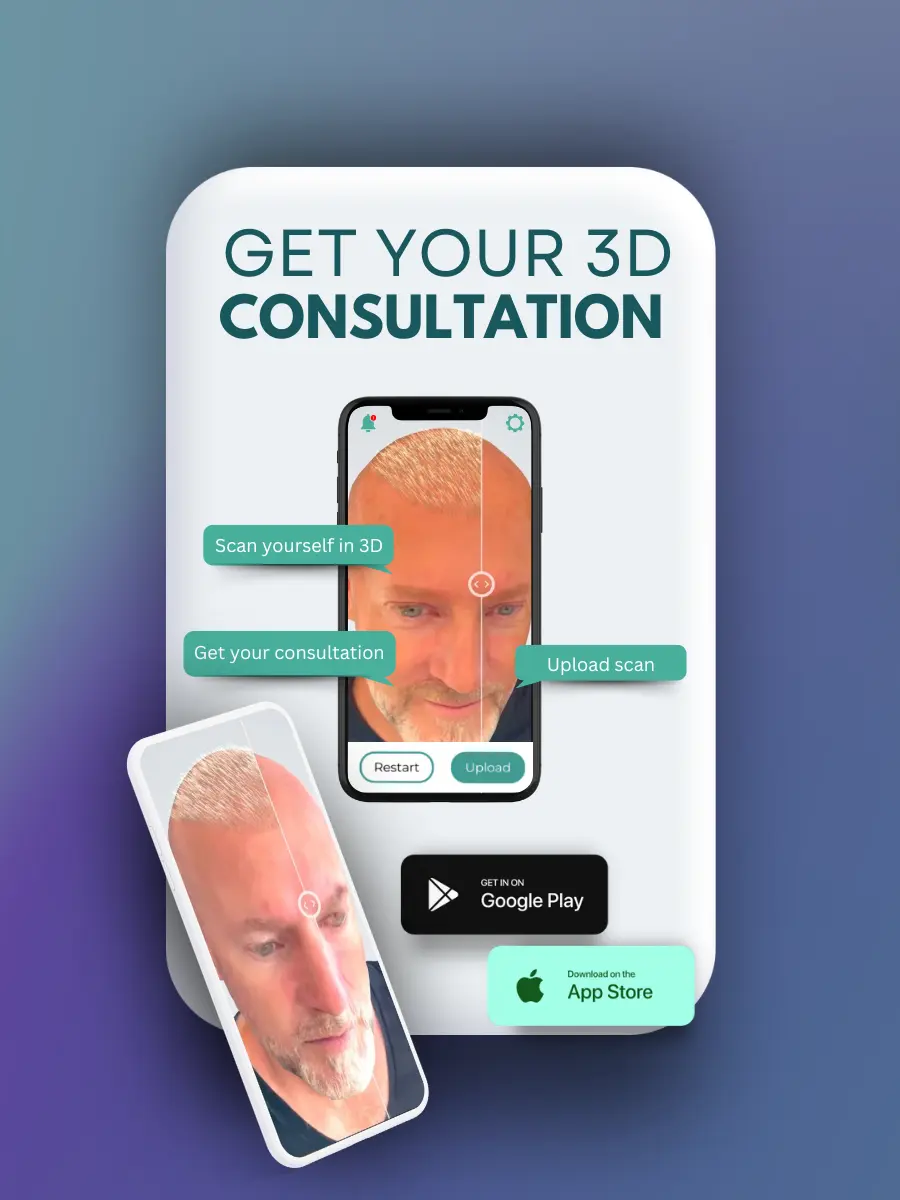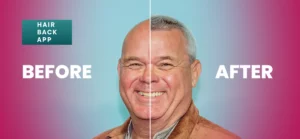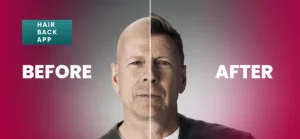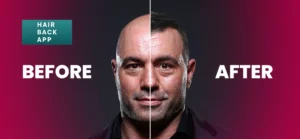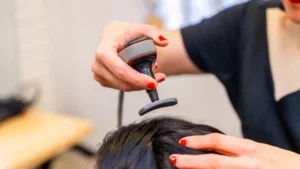Stress effects on hair transplants should not be underestimated. Hair loss is a common issue that affects millions of individuals worldwide. For many, hair restoration procedures such as hair transplants offer a solution to regain their hair and confidence.
However, an often overlooked factor in both natural hair loss and the success of a transplant is stress.
My name is Emma Wright, your go-to hair restoration specialist. In this comprehensive article, we will explore how stress can impact hair loss and the success of hair transplants, providing valuable tips for managing stress to optimize results.
Understanding the Role of Stress in Hair Loss
Stress is known to have a significant impact on the body, and its effects can manifest in various ways, including hair loss. When you experience stress, the body produces a hormone called cortisol, which can trigger a variety of physiological responses.
One of these responses involves the disruption of the normal hair growth cycle, leading to increased shedding and thinning. Stress effects on hair transplants can be particularly challenging, as they might hinder recovery and slow hair growth in newly transplanted follicles.
There are two primary types of hair loss that stress can exacerbate:
- Telogen Effluvium: This is a temporary form of hair loss that occurs after a stressful event. It happens when stress causes a significant number of hair follicles to enter the resting (telogen) phase of the growth cycle, leading to shedding. While telogen effluvium is usually reversible, the increased shedding can be frustrating and may contribute to noticeable hair thinning. Understanding the stress effects on hair transplants is crucial for effective post-transplant care.
- Alopecia Areata: Stress can also trigger an autoimmune response known as alopecia areata, which causes hair to fall out in small, round patches. In some cases, stress can be a significant factor in the onset of this condition, although other factors like genetics or immune system dysfunction also play a role. Stress effects on hair transplants can also lead to temporary hair shedding, which might concern individuals post-transplant.
How Stress Affects Hair Transplant Success
The process of hair transplantation involves taking healthy hair follicles from one area of the scalp (usually the back or sides of the head) and transplanting them to areas where hair is thinning or balding. While hair transplants can be highly effective, stress effects on hair transplants can interfere with the healing process and the overall success of the procedure.
Stress impacts hair transplants in several ways:
- Delayed Healing: After a hair transplant, the scalp needs time to heal, and this process can be hindered by high levels of stress. Stress effects on hair transplants can suppress the immune system, leading to slower recovery times and increased risk of infection, which can affect the success of the transplant.
- Disrupted Hair Growth Cycle: The transplanted follicles are initially placed in a resting phase after the procedure. Stress can delay the transition from the resting phase to the growing phase, which can slow down the rate at which new hair grows post-transplant. The stress effects on hair transplants can hinder the natural growth cycle, leading to delayed results.
- Increased Shedding: Stress may cause temporary shedding of transplanted hairs, leading to concerns about the results. While some shedding is normal in the early stages after a transplant, excessive stress may exacerbate this process, making it appear as though the transplant was unsuccessful. Managing stress effects on hair transplants is crucial for improving the rate of hair retention and growth.
- Compromised Scalp Health: High levels of stress can negatively impact the scalp’s health, contributing to inflammation or dryness. A healthy scalp is essential for the transplanted hair follicles to thrive, and stress effects on hair transplants can hinder this process, leading to complications like scarring or poor follicle growth.

How to Manage Stress for Successful Hair Transplant Results
To achieve optimal results from a hair transplant, managing stress effectively is essential. Below are some practical tips for managing stress both before and after the procedure, helping reduce the stress effects on hair transplants:
- Follow Post-Transplant Instructions: After your hair transplant, it’s crucial to follow your surgeon’s post-operative care instructions closely. This includes avoiding activities that could put undue stress on the scalp, such as vigorous exercise or touching the transplanted area. Using gentle, post-transplant shampoo can also help maintain a healthy scalp and encourage optimal hair growth, reducing stress effects on hair transplants.
- Practice Relaxation Techniques: Engage in activities that promote relaxation, such as yoga, deep breathing exercises, and meditation. These practices help lower cortisol levels and encourage a sense of calm, which can benefit your overall health and promote healing after a hair transplant. Reducing stress effects on hair transplants will lead to faster recovery and better growth of transplanted hair.
- Understand the Impact of Genetics on Your Hair: Stress may not be the only factor affecting your hair health. Genetics also play a major role in hair loss, especially in cases of androgenetic alopecia (pattern baldness). If you’re interested in learning more, there are many resources available to help you understand how genetics plays a role in hair loss, which can be important for managing expectations regarding the results of your hair transplant.
- Maintain a Healthy Diet: Eating a balanced diet rich in vitamins and minerals, including those that promote hair health (like biotin, zinc, and iron), can help reduce stress and support hair growth. Staying hydrated is also crucial for maintaining a healthy scalp and countering stress effects on hair transplants.
- Get Enough Sleep: Sleep is essential for stress recovery and overall well-being. Aim for 7-9 hours of sleep each night to allow your body and scalp to heal properly after a hair transplant. Lack of sleep can exacerbate stress and disrupt the hair growth cycle. Reducing stress effects on hair transplants can improve your recovery and long-term results.
- Exercise Regularly: Physical activity is a natural way to reduce stress. Regular exercise helps release endorphins, the body’s “feel-good” hormones, which can improve mood and overall mental health. Managing stress effects on hair transplants through exercise helps maintain a balanced stress level, promoting better healing and follicle growth.
- Addressing Cultural Views on Hair Loss: In some cultures, hair loss can carry emotional and social stigma. It’s essential to recognize how societal attitudes toward hair loss might influence your stress levels. For support, consider exploring how cultural views on hair loss may impact your self-esteem and mental health, and work on strategies to manage these feelings while undergoing a transplant.
- Avoid Stress Triggers: Identify the sources of stress in your life and take proactive steps to reduce or eliminate them. Whether it’s work-related pressure or personal challenges, managing stressors can help improve your mental health and the success of your hair transplant. Minimizing stress effects on hair transplants will lead to faster, more effective results.
- Consider Virtual Hair Transplant Consultations: If you’re feeling anxious or stressed about your hair transplant procedure, consider scheduling a virtual hair transplant consultation with a qualified surgeon. Virtual consultations can provide you with personalized advice and help you feel more confident about the process, alleviating some of the stress effects on hair transplants associated with the decision.
Conclusion
Stress effects on hair transplants should be carefully considered, as they can significantly impact both natural hair loss and the success of a transplant. By understanding how stress affects hair health, and by taking steps to manage stress before and after a transplant, individuals can enhance the chances of achieving successful and long-lasting results.
Remember, managing stress, combined with proper post-transplant care, including the use of appropriate post-transplant shampoo and following your surgeon’s instructions, is key to ensuring that your hair transplant delivers the best possible outcomes.
With the right approach to stress management and awareness, you can improve both the health of your hair and your overall well-being, leading to a more positive and successful hair restoration journey.

